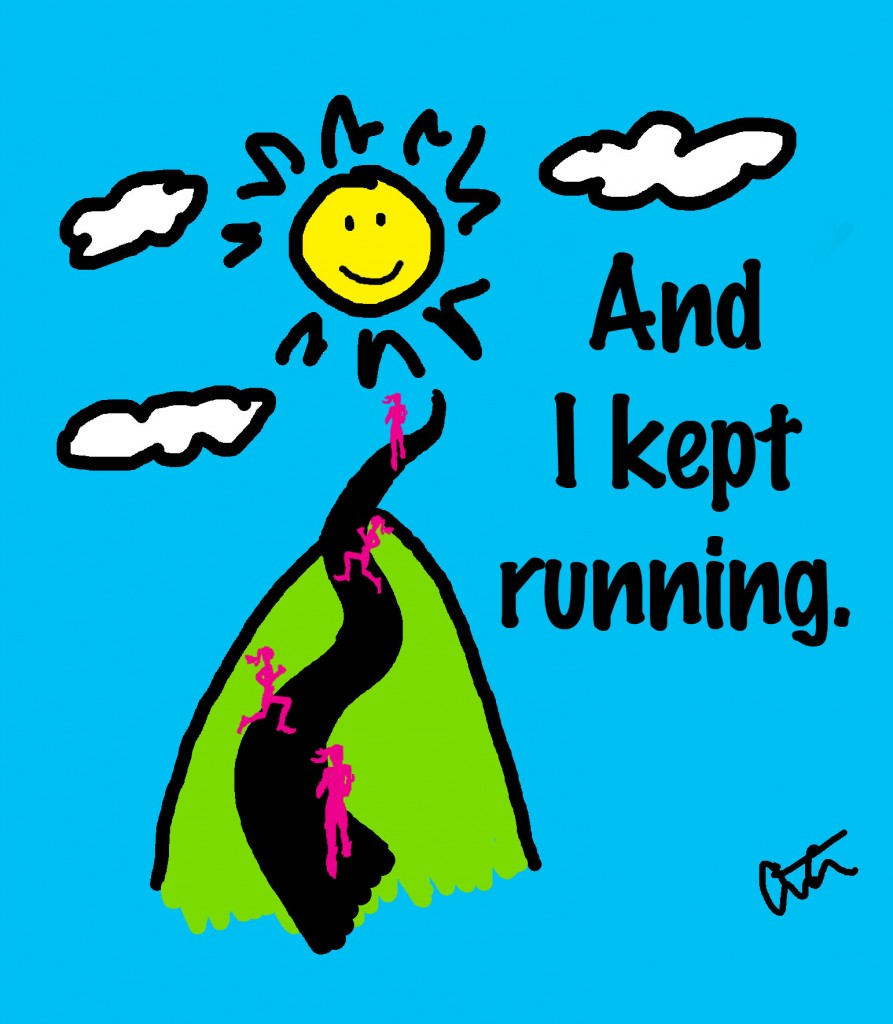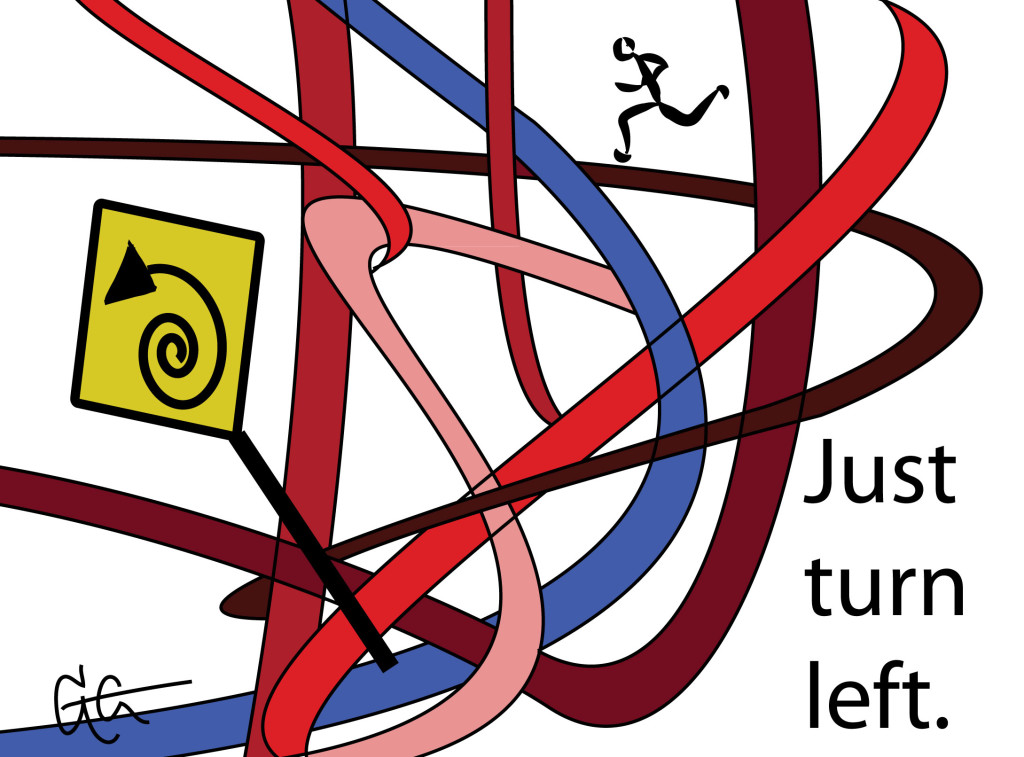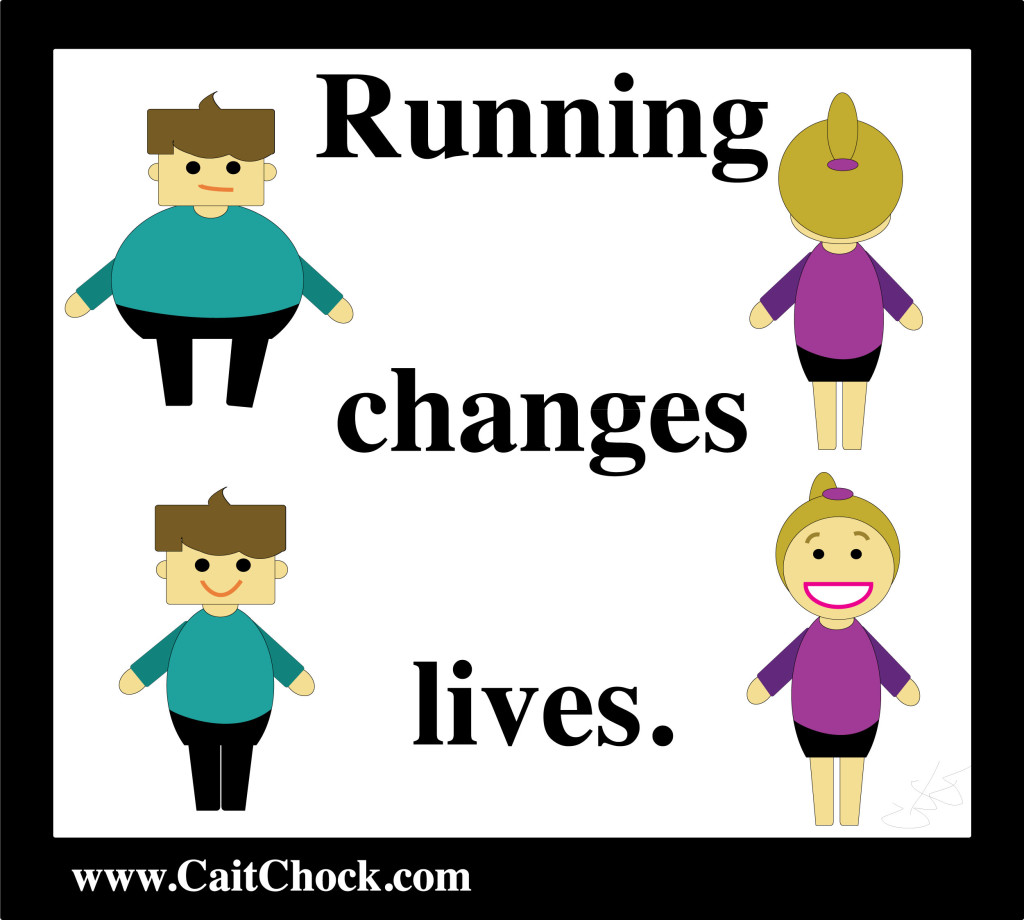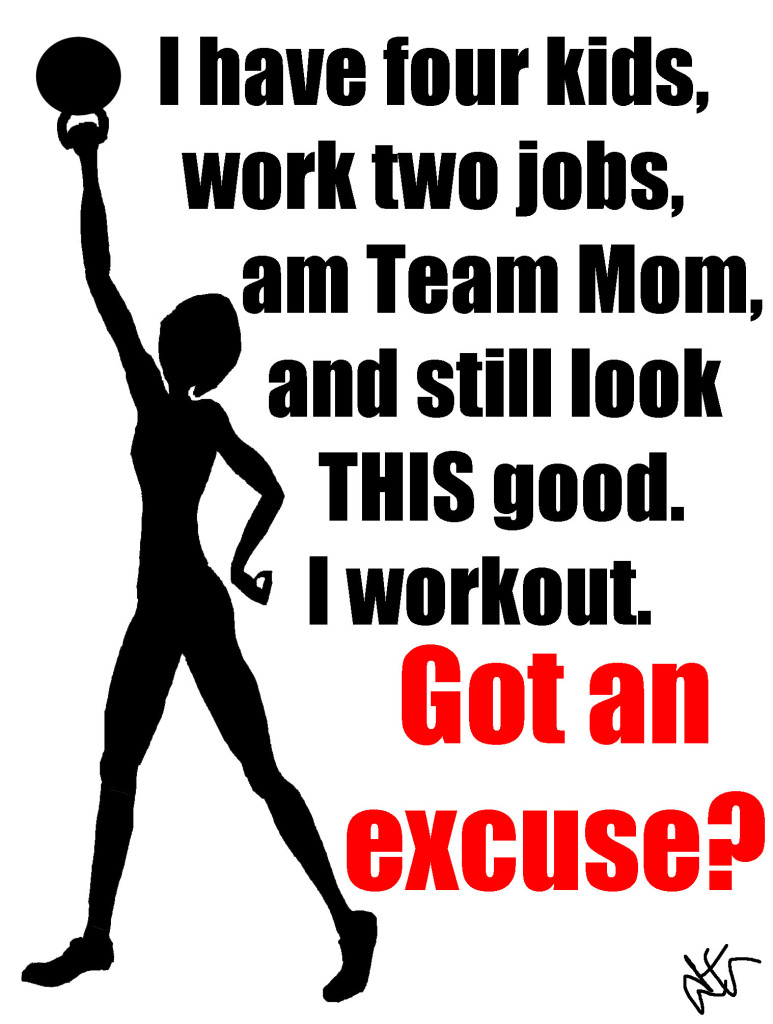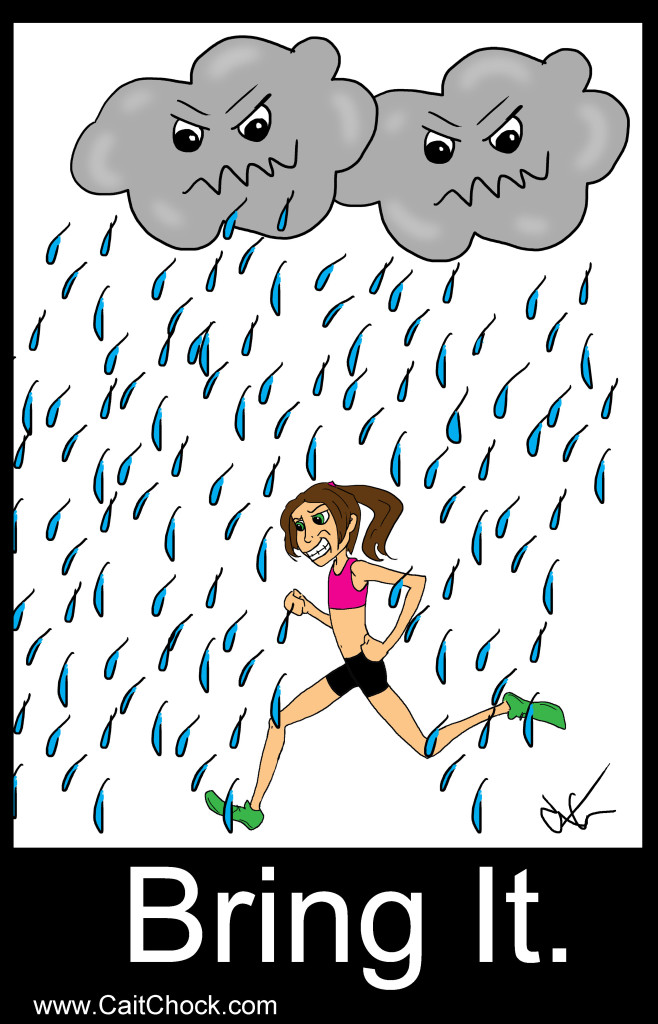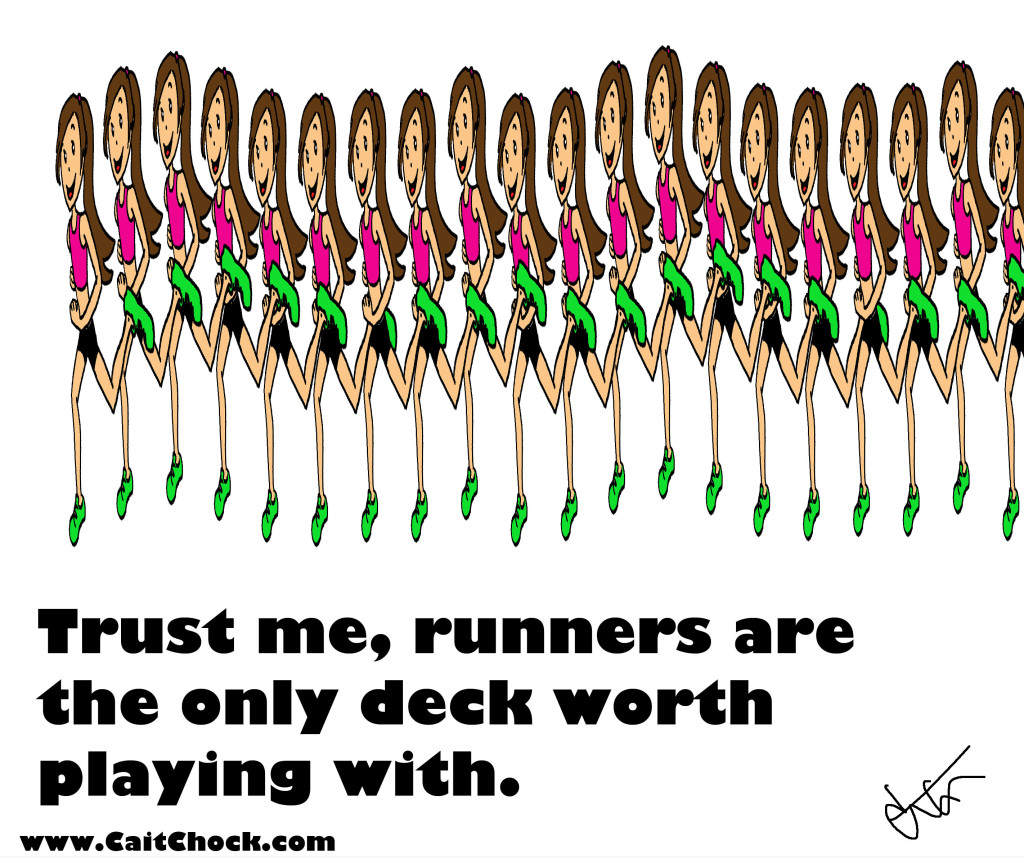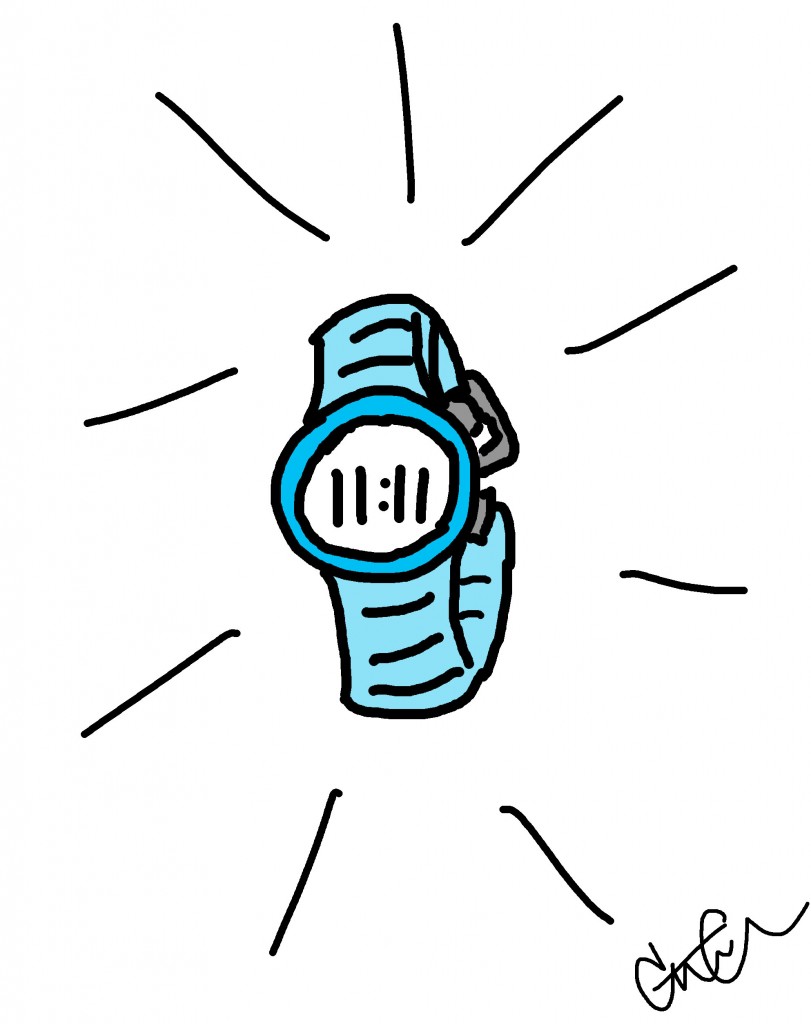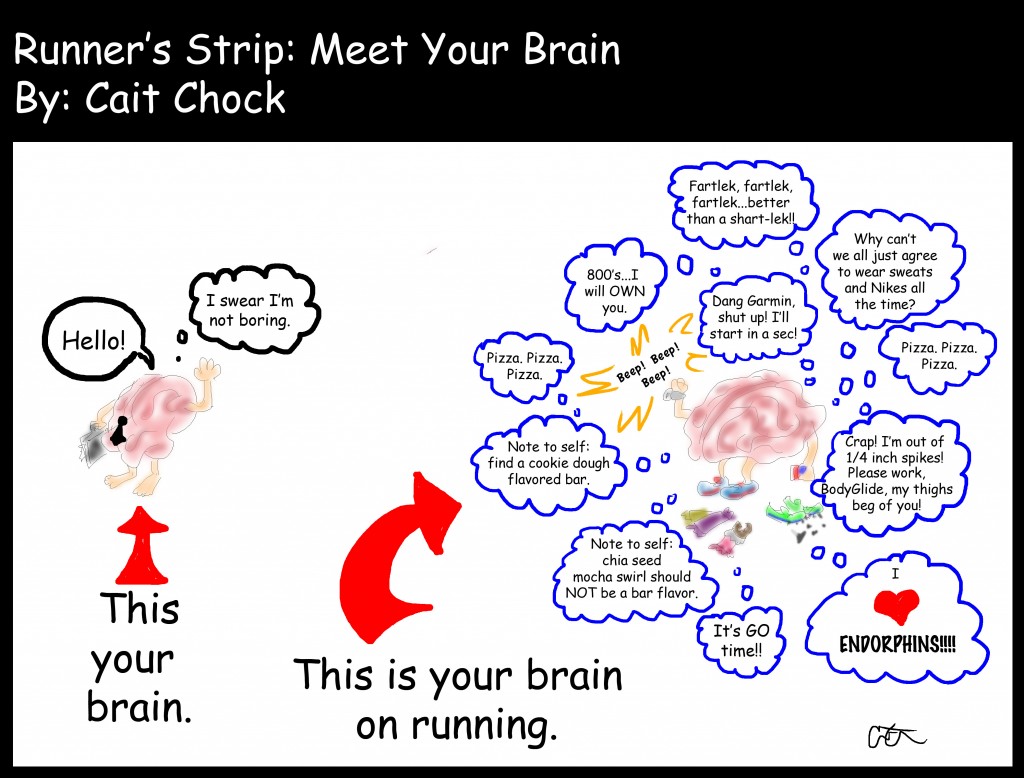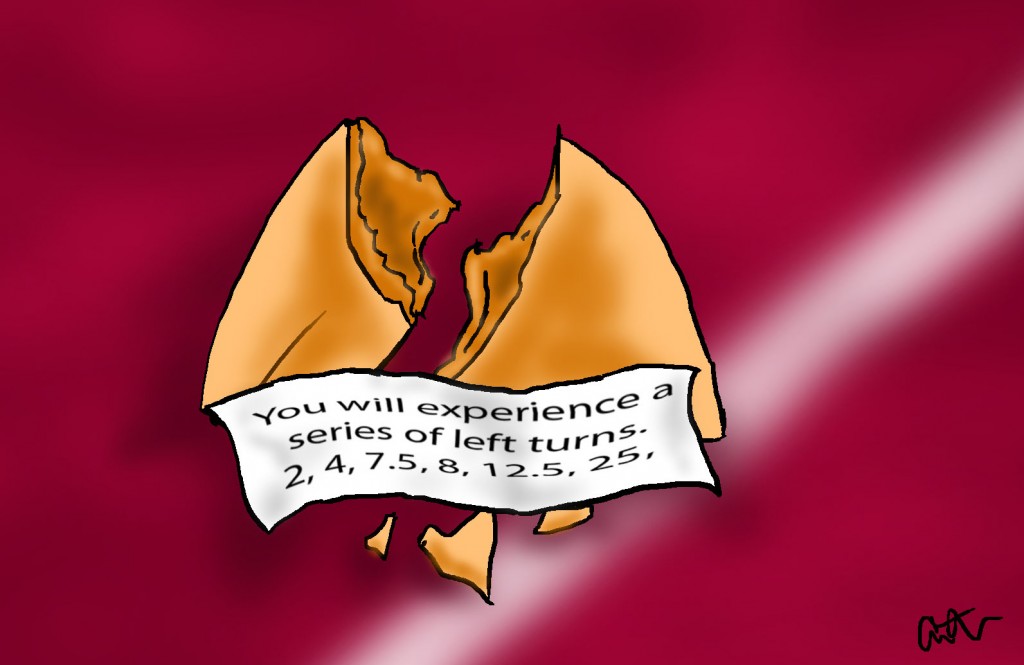I love running (duh) but you may recall I’m not entirely in a Ménage à trois with stretching AND running. Don’t get be wrong, I KNOW how important regular stretching is to prevent injuries and improve your running performance. Heck, I write about it tons HERE and HERE…oh and I harp on it in my Competitor and Running Time articles.
But do I love it? Eh…we’ll say I would choke it down.
Then the world shook. You probably felt it actually. Remember THIS post where I talked about the BEST MASSAGE THERAPIST in the world?? Al Kupczak (aka also my BFF…all runners should contact him: 303-817-9961) literally solved a string of 3.5+ years of injuries stemming from my car accident. Side-not, getting hit by a car and almost losing your leg isn’t all it’s cracked up to be.
Well I mean I was able to run…but it was ugly, it never really felt like it used to, I couldn’t go faster than an easy pace without getting injured to where I couldn’t run at all. I saw lots of docs, tried lots of things…yada yada yada…finally got my butt up to Boulder, CO.
“Cait, you’re tight as h*ll.”
“I know, Al.”
“It’s not all your fault, there’s lots of scar tissue and calcifications stopping you from being able to stretch.”
“I’ve been TELLING PEOPLE!!! See, it’s not my fault, stretching doesn’t like me!!”
“Well now that I’ve broken all that up you CAN stretch now.”
[not verbatim but you got the gist]
It was an intense 12 days, saw Al Kup every other day, hours on the table, and then…miracle beyond miracles check this out:
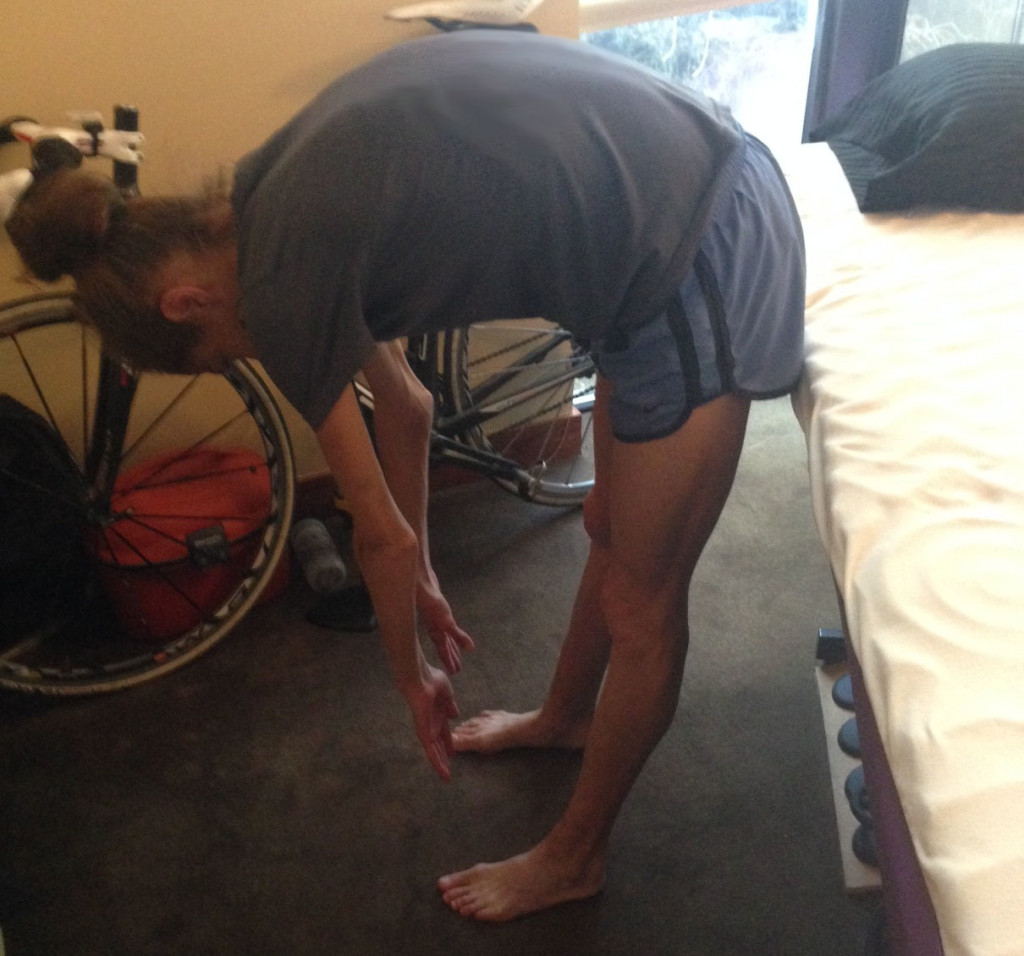
First day in CO…I’ve never IN MY LIFE touched my toes before.
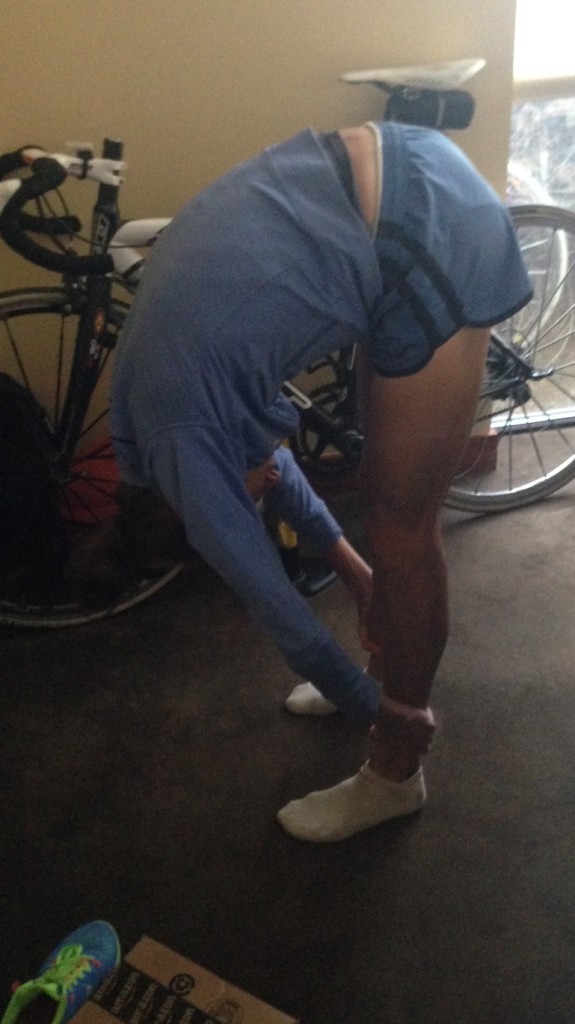
This is only four days later after 2 treatments. I was able to touch the ground and even grab my ankles and pull myself closer to my thighs. [yes I’m wearing the same scrubby runner shorts, don’t judges. I had to pack light…it’s called rinse, hang, and repeat 😉 ]
I had a lot of issues but the main ones were my hamstrings, adductors, and abductors. They were extremely tight and in a constant tug-of-war when I ran. When I left CO, Al sent me home with a bunch of stretches and some lovly parting words, “If you want to stay healthy you have to keep stretching.”
So I’ve been religious about my stretching routine.

I had to touch my toes to take that first shot!! Booyah! 😉
#proof
Now I want to also tell people that when you have a TON of issues [like I did, Al had a lot to work on, and fixed a pretty marked leg length difference] and you make changes, even ones for the better, your body is thrown for a loop. It takes time to adjust to the new running style.
Think about it, you do something one way for years and years, it will take time for the body to adapt. There will be weaker muscles not used to working as hard that need to get stronger and to avoid compensation injuries you’ve got to be careful.
So my new runner body IS going through lots of changes, sorenesses and tightnesses I’ve never had before. I call Al freaking out but his answer is always the same: “Stretch. Be patient.” He’ll give me the best stretches for the specific soreness and I am always amazed that *viola* a few days later the sorenesses are gone.
The world has been flipped upside down. I actually AM embracing a three-way with running and stretching. And I certainly hope you do too…preferably it’ll take you SOONER than I did to open up to the miracle of the stretch. 😉
Side-note here…this Arty Runnerchick is FINALLY on instagram!! You can check me out HERE…and see my very first picture. Awww…sooo cute…like a baby taking their first steps, except I’m a fully grown adult who was too lame to get on the site at a decent age. PS- I’m an artist, I post my art my choice…so don’t worry there will not be tons of selfies 😛
——
In case you missed it…check out my NEWEST running shirt!
——
1) Do you stretch often?
2) Do you actually LIKE to stretch?
3) Are you on instgram?? Let me know!!

